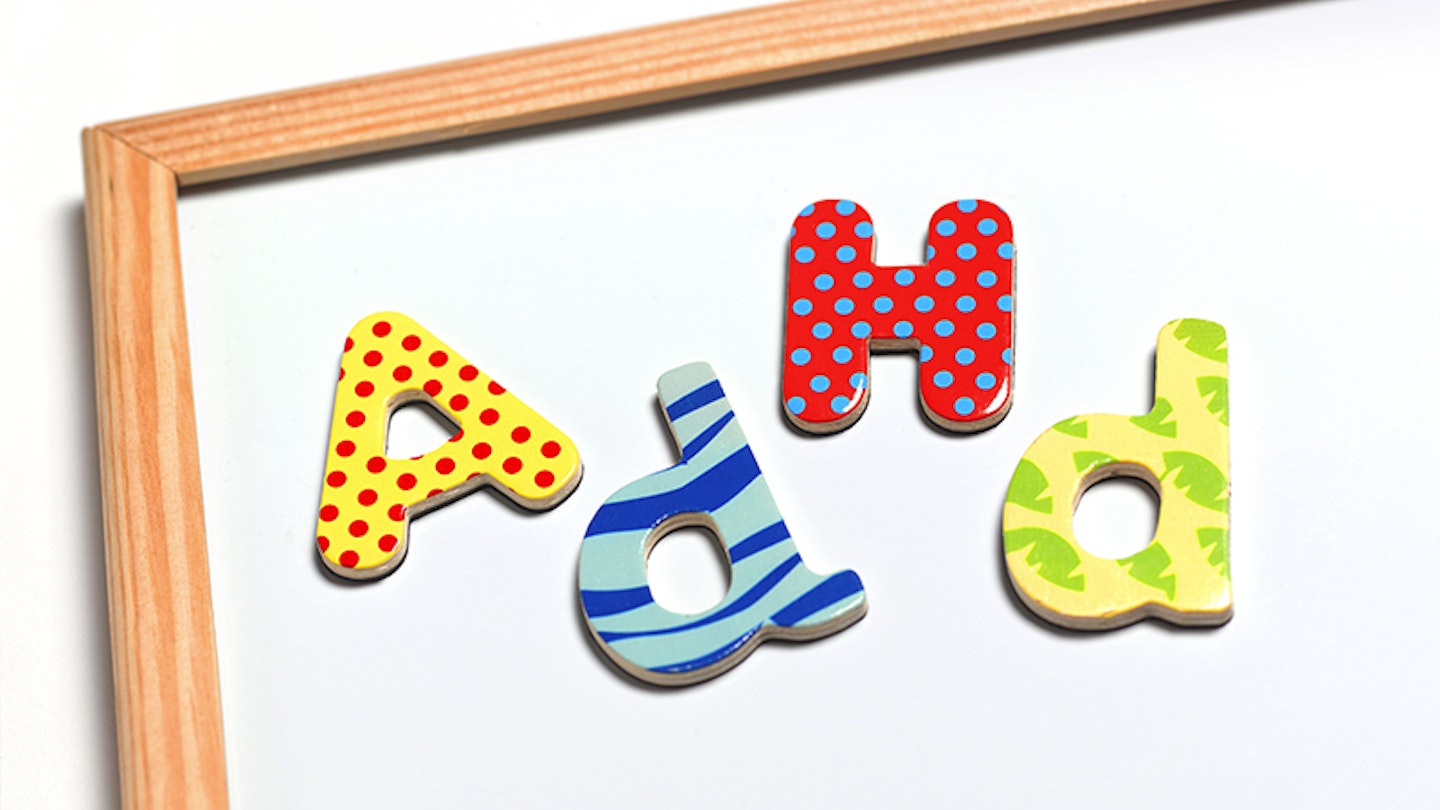Attention Deficit Hyperactivity Disorder (ADHD) is a much-misunderstood condition. A neurodevelopmental disorder and Specific Learning Difference (SpLD) it also appears alongside other conditions such as dyspraxia, dyslexia, and language disorders. Most people think it’s to do with hyperactivity and distraction, however, there are hundreds of ADHD traits that make up an ADHD brain.
Sarah Templeton is an ADHD counsellor, coach and CBT therapist, and author of How Not to Murder Your ADHD Kid. Diagnosed with ADHD herself as an adult, here she explains some common symptoms of ADHD in children.
Some people still think ADHD is a childhood behavioural disorder that you outgrow in your late teens. There are even medical professionals who think this, but this couldn’t be further from the truth. ADHD is a different brain wiring that you are born with and have for life.
Here are some big indicators that your child might have one of the three presentations of ADHD - Primarily Hyperactive/Impulsive, Primarily Inattentive and Combined which means you have traits of both the other presentations.
1 Low boredom threshold
Is your toddler always bored? Are they constantly looking for something else to do? Do they struggle to play a game, do a project or watch a TV programme without getting itchy feet and wanting to move onto the next thing? This is a clear indication of an under stimulated ADHD brain needing something more exciting to do.
2 Struggling to focus and concentrate
If nursery and play group teachers are noticing that your child struggles to stay focused, dig deeper. It could be that they are just bored, or it could be an early sign of ADHD, or a learning disability connected to it such as dyscalculia, dyslexia or dysgraphia.
3 Always thinking they know best and wanting everything their own way
If you have a child displaying this behaviour, then dig deeper because it could be hiding ADHD.
ADHD brains are wired to think they know best and from a very young age. I’ve literally seen three-year-olds telling their parents exactly why they know best and want things their own way! It ramps up hugely during puberty but is a lifelong way of thinking for an ADHD brain.
4 Impulsivity and compulsivity
ADHD brains are impulsive. This means they say things and do things without thinking. So, if your child is getting into trouble at nursery for putting their hand up and shouting out the answer before being asked or impulsively running out of into the road, this could well be ADHD impulsivity. Likewise, if you have a child who climbs up high without thinking of how to get down or how they could get hurt, this could well be due to impulsivity.
Compulsivity is also hugely linked to ADHD. Put simply, when an ADHD brain gets a taste for something it likes, it cannot regulate itself to stop. So, if you have a child who instead of having one slice of cake eats the whole cake and then feels terribly sick or opens a multipack of crisps and eats all twelve packets, these are clear signs of a compulsive brain that won’t let the child know when they have had enough.
5 Emotional dysregulation
It’s only been in recent years that senior ADHD medics have realised the biggest impact of ADHD on a person is not hyperactivity, impulsivity, inattention or distraction. It is actually emotional dysregulation. This is because the part of the brain that regulates emotion simply doesn’t work in an ADHD brain. This can manifest in numerous ways. It may mean an ADHD child is overly emotional, cries at the smallest thing, and can have dramatic mood swings all in the space of an hour.
It may also mean a child cannot regulate anger and frustration, so will have meltdowns or kick, punch or shout out beyond the usual toddler tantrums.
6 Always needing to know why
This is a much lesser-known trait of ADHD, but if you have a child who is constantly asking the ‘Why?’ question, more than usual for a child of this age, this is another big indicator of ADHD.
ADHD brains are inquisitive, and they search for exciting and stimulating information constantly. An interesting point here is that as soon as an ADHD brain does understand why something is necessary, instantly it will find the motivation to act.
7 Not settling or sleeping
When many mums sit in front of paediatricians, looking for a diagnosis when their child is anything from five upwards, one of the things a paediatrician will ask is whether the child was a good sleeper.
Often, but of course not always, ADHD babies need less sleep than others. They are fidgety and restless and very active. Some mums report babies from a very young age not needing much sleep and waking up numerous times in the night. They also often wake up at the crack of dawn, and seemingly still having plenty of energy to last all day.
These are seven indicators of possible ADHD. Knowing how not being diagnosed, understood and medicated from a young age has severely impacted my own life, I strongly urge you not to overlook any of these traits and if your child presents several, dig deeper.
